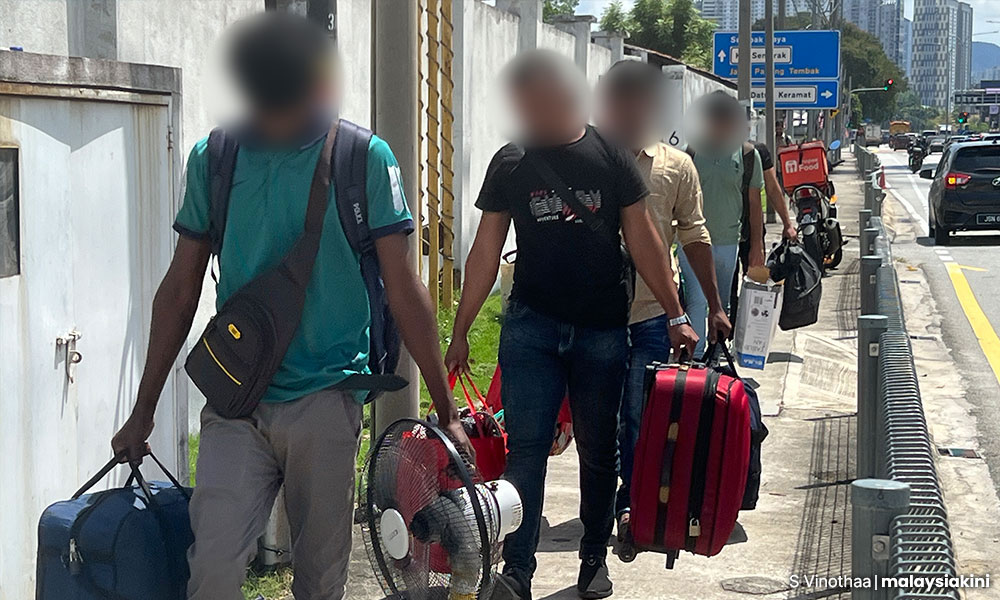The Federation of Malaysian Manufacturers (FMM) wants the “anti-Ali Baba” law to be implemented promptly to deal with the issue of undocumented migrant workers in the country.
According to its president Soh Thian Lai, the law must also be beefed up with stricter enforcement by the relevant authorities.
“The influx of migrant workers for purposes other than employment is indeed a cause for concern and a national problem which must be dealt with comprehensively and transparently.
“Equally critical to addressing the issue of undocumented workers in the country would be to ensure a credible recruitment system and holistic enforcement activities,” he said in a statement today.
Soh (above) was commenting on the government’s plan to formulate laws and put an end to “Ali Baba” business practices.
“Ali Baba” refers to a form of rent-seeking where businesses that win government contracts, subcontract the actual work to others.

Elaborating, he said the main reason for the influx of undocumented workers in the country was the previous policy of allowing agents to bring in migrant workers as outsourced workers, instead of as direct employees for companies.
“Many workers were brought in via this channel with the promise of employment, only to be left in a lurch without any proper work secured for them.
“These workers eventually became illegals as they needed to earn a living to send money home as well as pay off their financial obligations undertaken to come here in the first place.
“Despite the abolishment of the outsourcing policy, it is very disturbing to note that workers are being brought into the country without secured jobs today, which very likely is due to fraudulent activities in the recruitment process - clearly indicating that there are major weaknesses in the entire recruitment process which must be tackled and strengthened immediately,” said Soh.
Strengthen enforcement
Weak enforcement by the relevant authorities has also resulted in undocumented workers staying in the country for prolonged periods, Soh noted.
Some of these migrants then start running businesses, which is not allowed under local laws, he added.
“Enforcement on the parties involved and responsible in these activities must be beefed up.
“It is unfair to blame employers for worker abscondment as employers are under tremendous pressure to adhere to strict labour practices, as well as to adopt the Environmental, Social, and Governance (ESG) elements in business operations.
“Manufacturers are also subject to strict requirements from the Ministry of International Trade and Industry as the regulatory agency for the manufacturing sector, for employers to show proof of orders and demand as justification for the number of migrant workers applied to ensure that the industry does not abuse the system and bring in an excessive number of workers,” said Soh.
On FMM’s part, he stressed that the federation has consistently advised its members to ensure the employment of migrant workers is done directly with minimum use of agents.
“Employers must have all the necessary due diligence processes in place to ensure that every step of the employment process is done with full transparency, governance, and integrity.
“Ensuring that business operations are conducted with the utmost level of responsibility including in their labour management must be the top priority of all our industries.
“Any unhealthy business practice would have a damaging impact and jeopardise the competitiveness of our manufacturers in the global supply chain and significantly threaten and damage the company’s reputation and investor relations, as well as concurrently tarnish the entire sector’s and country’s standing in the global arena.
“FMM strongly believes that collective steps towards addressing undocumented workers and implementation of the other labour reform initiatives including the multi-tier levy mechanism would be critical to the success of reducing dependency on migrant workers and of moving to a high-income status nation.” - Mkini

No comments:
Post a Comment
Note: Only a member of this blog may post a comment.